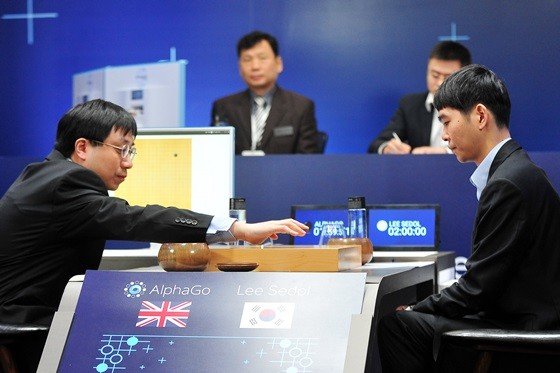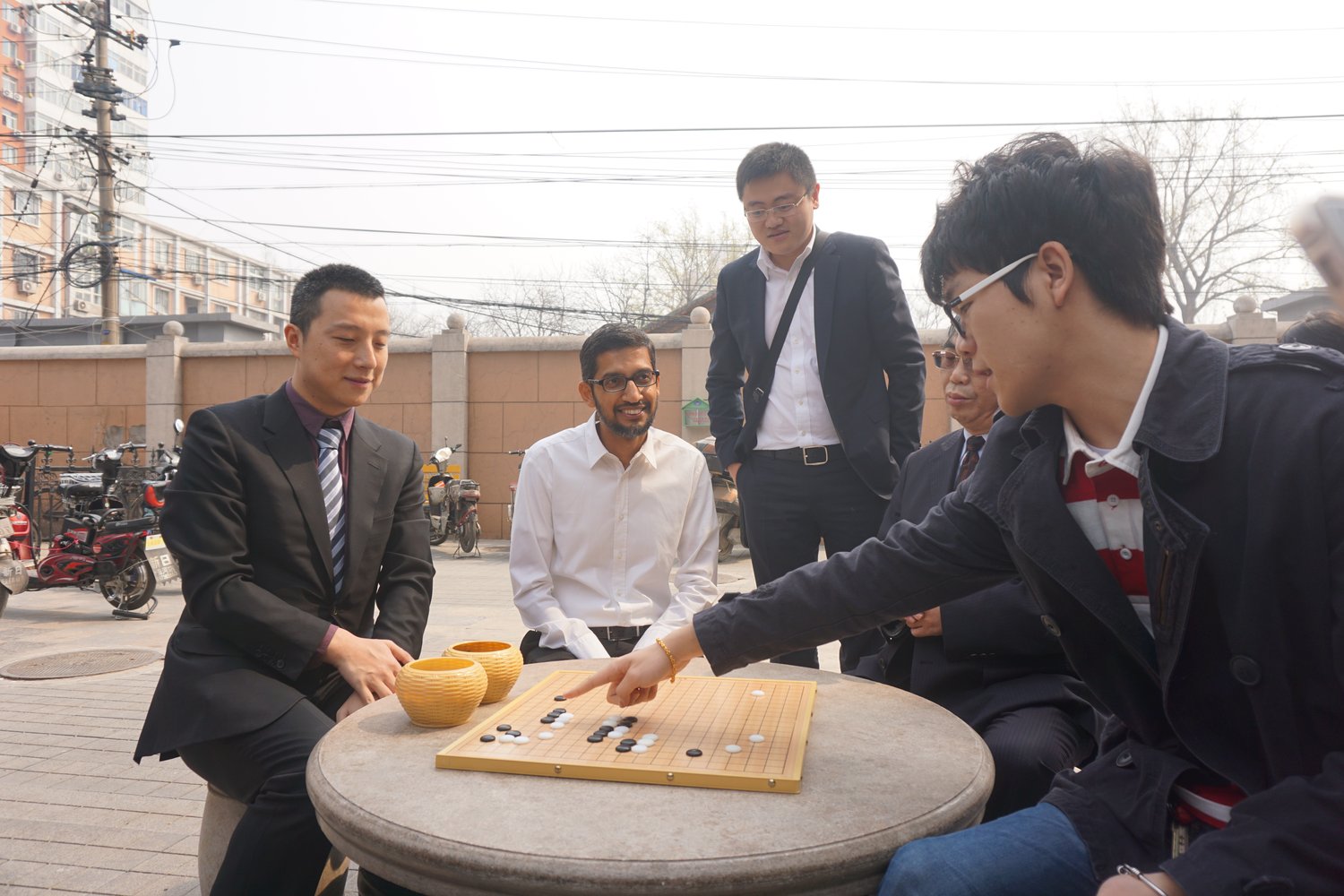AI is not just a game for DeepMind, co-founder and CEO Demis Hassabis once said famously. The Google-owned company famous for its AI program AlphaGo that has successfully bested the world’s top Go players and won 50 straight games of the ancient Chinese board game will be bracing for another championship next month, going head-to-head against 19-year-old Chinese Go player Ke Jie.
Even the reigning champion Ke Jie has acknowledged the superiority of the AI bot. Last year, Korean Go master Lee Sedol accepted defeat at the hands of the bot; this turned out to be a phenomenal feat for the London-based AI research company, acquired by Google in 2014 to advance research in AI. When DeepMind was first acquired, the takeover was seen as new R&D centre, a sort of algorithm factory making it the biggest acquisition European acquisition with a payout of £400 million. At the time of buyout, DeepMind had not launched any of its products; neither had it formulated a way to turn its machine gameplay into a steady revenue stream.
But, the Google-owned company’s mantra remains the same, “Solve intelligence. Use it to make the world a better place.” If you may wonder how AlphaGo championship – that has become the world’s hunting ground for seeing robots trouncing humans, adds to Google’s depth of business, here’s a look.
Off the board game – AlphaGo is solving real world challenges

According to a DeepMind blog AlphaGo has been put to work to tackle significant issues such as reducing the energy use and is also put to use in a series of medical research projects. Here are some use case:
Reducing energy use: DeepMind has turned its machine learning knowledge to Google’s data centres where they have reduced the amount of energy used up to 40 %. The blog cites how DeepMind built “super-efficient servers at Google and invented efficient ways to cool the data centres and invested heavily in green energy sources”. The task was achieved by training neural networks on the average future PUE (Power Usage Effectiveness). The job just doesn’t stop at Google. The AI Company plans to apply to other data centre environments as well, reducing semiconductor manufacturing energy and water usage.
AI for prevention vision loss: DeepMind’s first medical research project with an NHS trust explored how machine learning could improve outcomes for diabetic retinopathy and age-related macular degeneration (AMD) – conditions that can lead to loss of vision. The project, though in early days aims to investigate how to provide earlier detection of disease that could prevent vision loss. According to Clara Eaglen, RNIB Eye Health Campaigns Manager: “AI technology that can check retinal scans and detect eye disease at a much earlier stage and can play a big role potentially in tackling avoidable sight loss. In many cases, once sight is lost it cannot be restored, so earlier detection that leads to rapid treatment will be hugely beneficial.”
AI in radiotherapy: Though AI has made several advances in oncology, what with IBM Watson promising offering personalized cancer treatment, DeepMind has applied its algorithms to head and neck cancers that are difficult to treat due to a process called segmentation. According to DeepMind, segmentation can take upto four hours and there is a radiotherapy segmentation algorithm in the process that could potentially be applied to other areas of the body as well.
DeepMind brings Neural Machine Translation to Google Translate: It was there for the last 10 years but it was only nearly perfect. DeepMind has bettered Google’s most valued asset by applying Neural Machine Translation and scaling it upto 103 languages. In the beginning, Google Translate worked on statistical models to translate text, but now, the Neural system translates the whole sentences at a time, rather than divvying it up. The new translate tool is at work at eight language pairs and covers more than 35% of all Google Translate queries.
AlphaGo is not the only things DeepMind works on

AlphaGo’s victories aren’t just limited to the board game, its results are mapped to real world problems. DeepMind is using neural network technology to take it to the next level and Hassabis revealed in an interview earlier how DeepMind’s focus is “only on games that fall in the ambit of their research.” In other words, the lessons of AlphaGo can potentially lead to massive enhancements in areas such as traditional search and ad business and the up and coming self-driving cars.
When it comes to operations, DeepMind division communicates largely with Google Brain but operates as its own entity, news reports suggest. Hassabis said reportedly, “We have by and large a free rein over what we want to do and can optimize the research progress”. He further added that Google Brain’s projects have a shorter research cycle as compared to DeepMind and are more product driven.
According to news reports, the next big thing DeepMind is working on is smartphone assistants, robotics and healthcare the next target of research. DeepMind envision smartphone assistants that offer more than conversational paths and are technically grounded in machine learning.
Future of AI
Come May 23-27, the DeepMind team will descend on Chinese water town Wuzhen for the 5 day event — Future of Go Summit. Besides a variety of game formats between Go and other top Chinese players, reigning Go virtuoso Ke Jie will take on the AI bot in what will be the highlight of the summit. And while the world will fawn over the probable rise or fall of Jie (yet is to be seen), another key feature would be the “Future of AI” wherein China’s leading AI researchers and DeepMind will talk about mining knowledge from the world’s oldest game.















































































